For pond lovers, the advent of spring means more than cleaning away dust bunnies behind the fridge. If you have a backyard pond, and depending on its size and what part of the country it is located, some degree of pond cleaning is an equally important rite of spring.
As certified Aquascape Inc. contractors, many local pond owners prefer that someone from our Deck and Patio team come and prepare their pond come spring. But, avid pondsters (is that a word?) who don’t mind putting on some boots and getting their hands dirty are happy to do it all themselves, or at least part of it.
What’s involved?
If your aquatic plants were not properly cut back in fall, they may very well have fallen back into the pond and decomposed and dirtied the water.
However, even if you did cut them back, some cleaning will probably be required. How much cleaning may depend on your pond’s size. Smaller ponds tend to have more impurities than larger ones.
“It’s not unlike a fish bowl verses a fish tank,” says Dave Stockwell, owner of Deck and Patio. “A fish tank is much easier to maintain than a fish bowl, isn’t it? There’s just more water to absorb impurities. However, even larger ponds require basic maintenance, such as cleaning out the filtration systems, fertilizing aquatic plants, adding new filter mats when required, etc.”
Dave adds that depending on the quality of the water, draining of the pond, rinsing it out, and refilling it using a de-chlorinator may be required as well.
Here’s a helpful video by Aquascape Inc. showing spring cleaning:
“If you’re draining the pond, it’s important to take great care of any pond fish during the process,” says Dave. “Keep them safe in a kiddie pool or the like, and put a net over them so they don’t jump out. Also, be sure to acclimate them during reentry.”
Here’s some tips from Forrest Churchill for how best to integrate your pond fish back into the cleaned pond:
It will take much less time to clean up a pond-less waterfall (pictured above) than a pond basin. Just dig out any debris in the Pond-less Waterfalls Snorkel Vault and, if it is required, drain the water using a clean-out pump placed into the vault — being careful not to flood any particular area.
The larger the pond, the better quality the water will be come spring. This beautiful pond project is really two ponds (one shown); in the larger pond pictured here there was even room for adding a large stone island with stepping stones out to it, where two Adirondack chairs were positioned for periods of contemplation and feeding the koi.
Even if you cut back your aquatic plants and water grasses, some will decompose. When doing spring cleaning, be sure it’s before the pond water temperature gets above 55 degrees. Otherwise, bacteria from the warmer water will have formed — causing another undesirable green phase. Photo: Aquascape Inc.
Spring pond cleaning is essential for a pond pristine enough to swim in (even if you don’t wish to). Remember, all bacteria isn’t bad, some good bacteria kill the bad guys. A healthy natural swimming pond is very possible and is worth all the care you give it. The right bog filtration and water plants, along with Biofalls (such as Aquascape Inc.’s) support your seasonal care for a healthy water feature.
The goal, of course, is that any pond at a minimum be healthy for fish and aquatic plants. This kind of water feature is a joy to sit by, listen to, and pond-er spring.

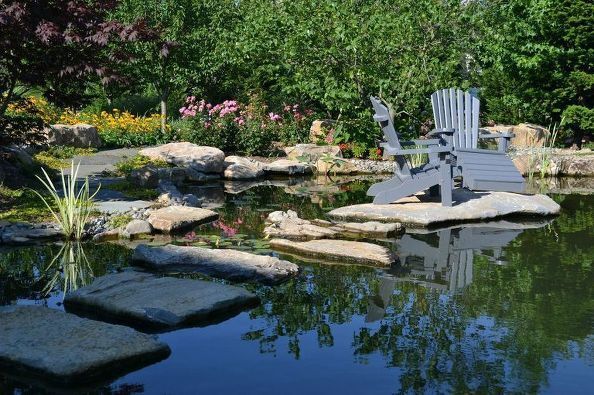
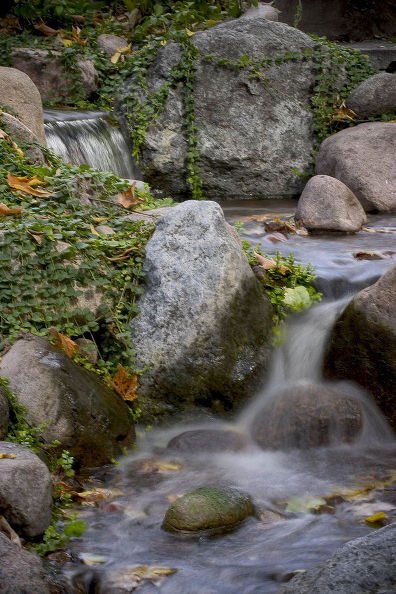
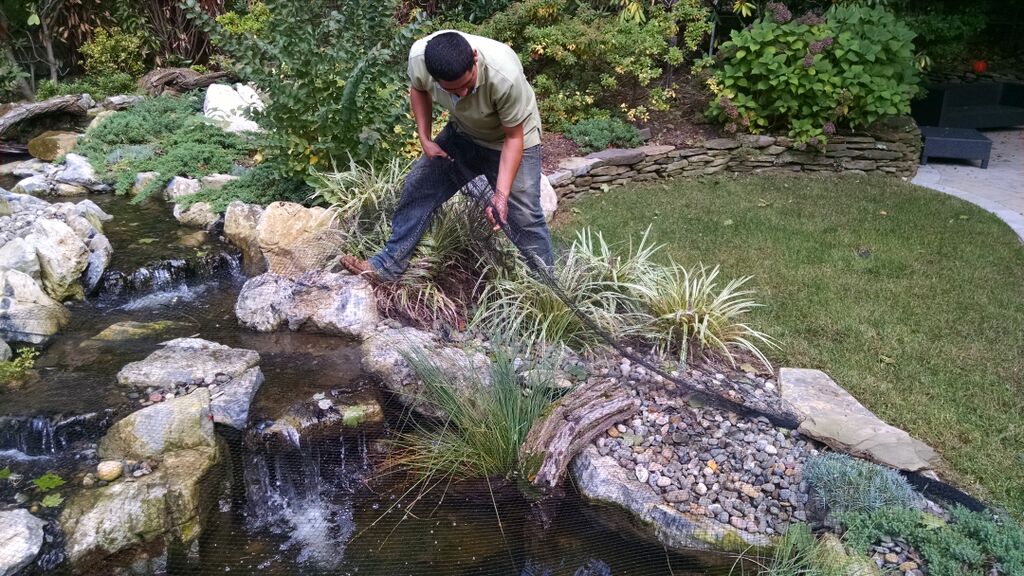
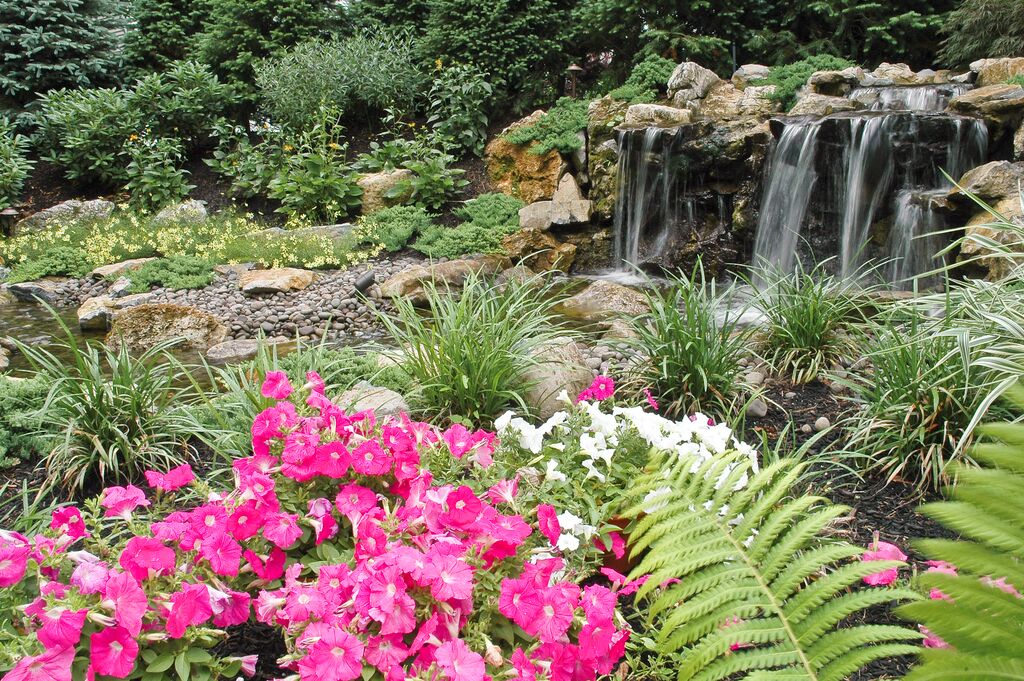
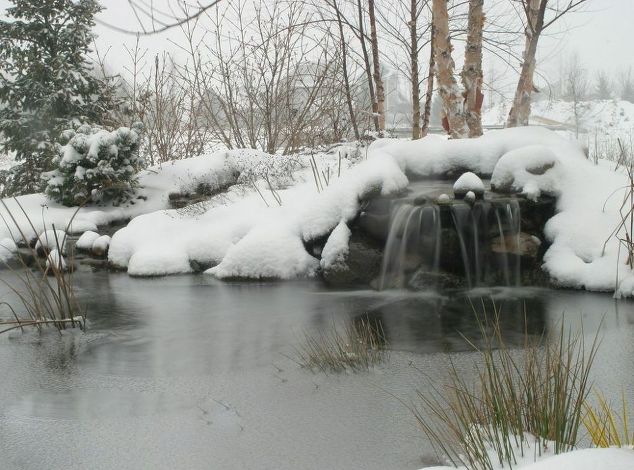
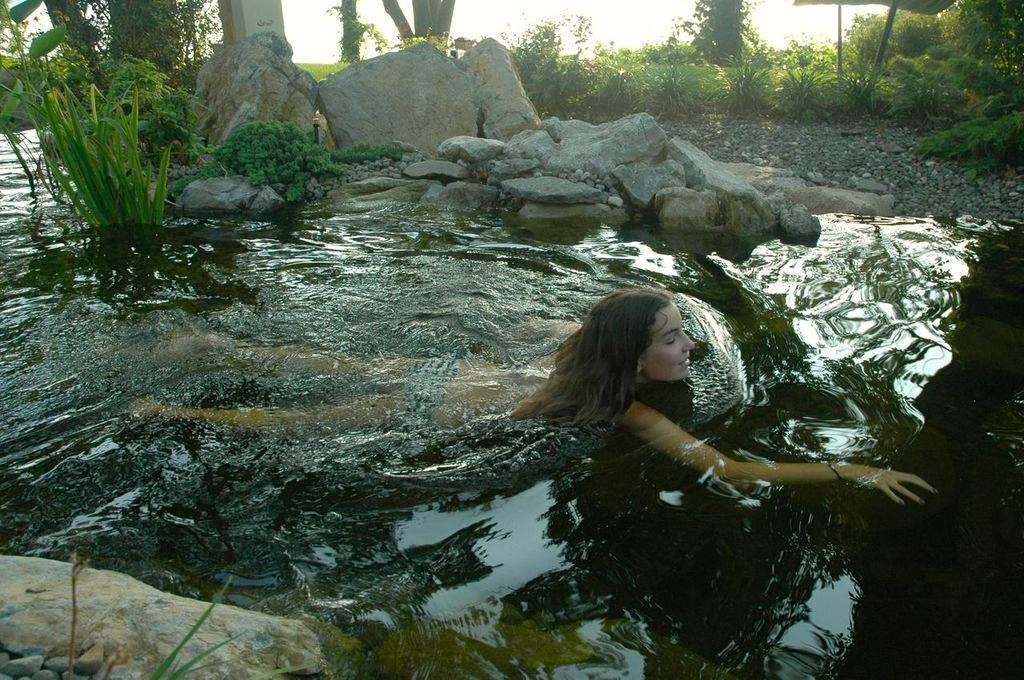
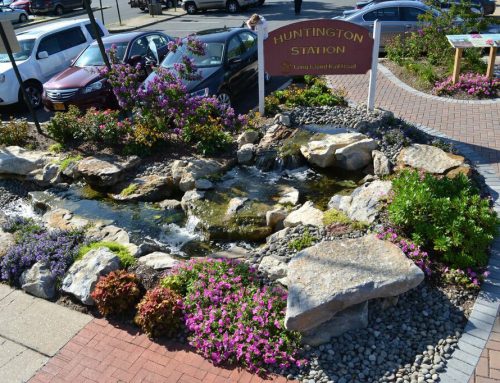

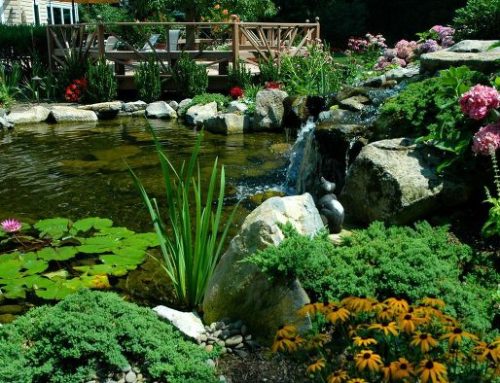


Leave A Comment
You must be logged in to post a comment.